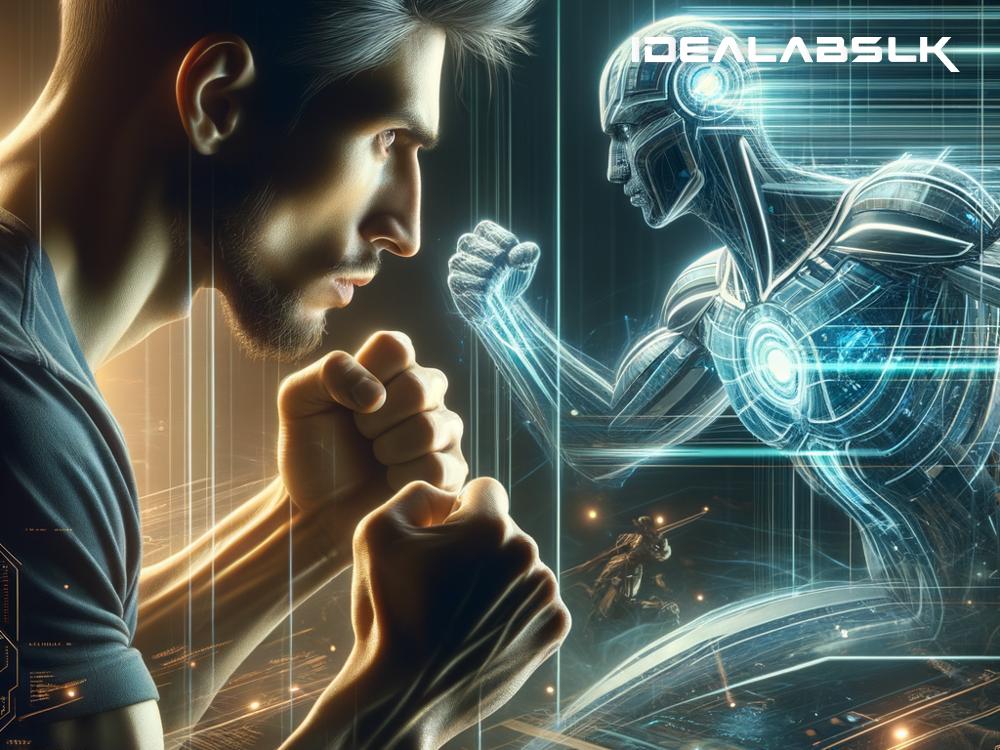AI in Fighting Games: Dynamic Opponents That Learn from You by 2025
In the ever-evolving world of video games, artificial intelligence (AI) has long been the secret sauce that spices up our gaming experiences. From the ghosts chasing you in Pac-Man to the crafty enemies in modern shooters, AI has been there every step of the way. But what if I told you that by 2025, fighting games will feature AI opponents that don’t just follow a set pattern but learn from how you play? Yes, you heard that right! Let’s dive into this fascinating future of fighting games where your next opponent could be a virtual mirror of your gaming style.
The Evolution of AI in Gaming
To understand where we’re heading, it’s worth taking a quick look back at how AI has shaped gaming. In the early days, AI behavior was pretty basic – think of Pong where the opponent paddle simply mirrored player moves within defined limits. Fast forward to now, and we've seen AI that can adapt to certain player actions, but often within a limited scope and predictability.
The 2025 Leap: Dynamic AI Opponents
What sets the year 2025 apart is the anticipated leap in AI technology. Advances in machine learning algorithms mean that AI isn't just reacting to player inputs but understanding and learning from them. In fighting games, this means facing opponents that observe and adapt to your every move, creating a more challenging and unique gameplay experience.
How Does It Work?
Imagine playing a fighting game where each opponent starts by analyzing your technique. Do you favor aggressive attacks, or do you wait and defend, looking for the perfect counter-attack? The AI takes note of these tendencies. With each match, it adapts its strategy to better counteract your style. It’s as though the game’s characters are learning from every step you take, every punch you throw, and every block you make.
The Benefits of Adaptive AI
The introduction of adaptive AI into fighting games has several exciting benefits. Firstly, it ensures no two matches are ever the same. Each battle is a new challenge, pushing players to continuously evolve their strategies. Secondly, it provides a more personalized gaming experience. As the AI learns from you, it tailors its approach to provide a tailored challenge that’s unique to your gameplay style. Lastly, it’s a fantastic training tool for players looking to hone their skills, forcing them to adapt and overcome increasingly intelligent opposition.
Potential Challenges
While the future of AI in fighting games sounds thrilling, there are hurdles to consider. The complexity of creating such dynamic AI means developers are tasked with an enormous technical challenge. Additionally, ensuring the AI remains fair and doesn’t become overwhelmingly difficult for casual players is crucial in maintaining the game's fun and accessibility.
The Social Aspect: AI as a Friend and Foe
An intriguing aspect of this evolution is the social implications within the gaming community. Players could share their custom-trained AI opponents, pitting their virtual selves against friends or foes online. This opens up a whole new dimension of competition and camaraderie among gamers.
Conclusion
As we look towards 2025, the prospect of fighting against AI that learns and adapts to our playstyle is not just a possibility; it’s becoming an inevitable evolution in the gaming landscape. This leap in AI technology promises to make fighting games more engaging, challenging, and personalized than ever before. It won’t just be about memorizing combos or predicting predefined patterns; it’ll be about outsmarting an ever-evolving opponent that knows you almost as well as you know yourself.
So, ready your controllers and sharpen your strategies - the future of fighting games is on the horizon, and it's learning from you with every move you make. Whether you’re a casual gamer or a seasoned pro, one thing is for certain: the games of 2025 will ensure the battlegrounds are never the same, offering an unprecedented level of dynamic competition that we’ve never seen before in the world of video games.

